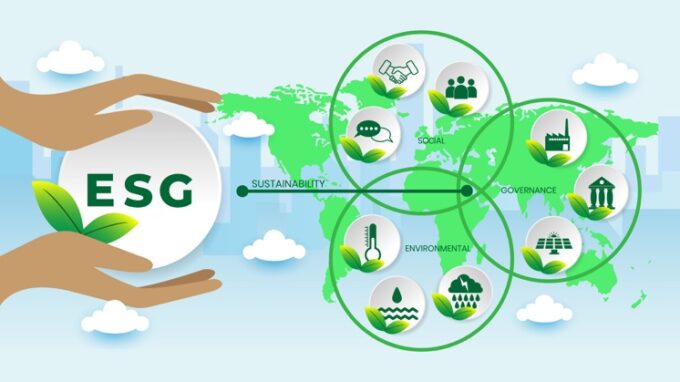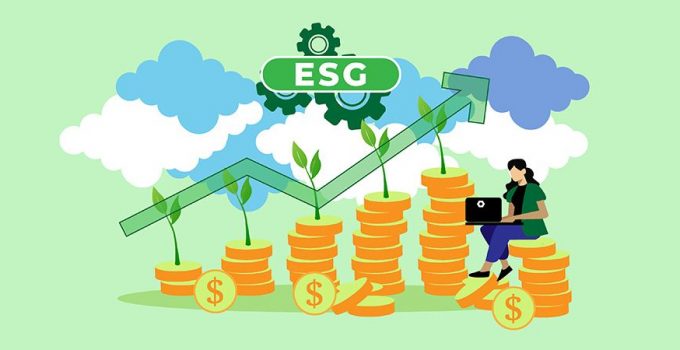Modern means of doing business and investing come with a lot of things worth considering and knowing. Technology is changing quickly and so are the practices of people. In order to keep up and move alongside the best in the industry, you have to first know about the novelties and then start to implement them yourself. One such modern trend revolves around investing in businesses and companies and it is called ESG.
You may have heard of this acronym already but do you know what it stands for? Moreover, do you know what it means and why it even exists? In the article beforehand we will talk more about it and tell you exactly what it is and what it implies. You will finally have all the right info on your side to start investing better and smarter and have all the benefits come your way. You can see insights.diligent.com if you wish to learn even more about this.
What does it stand for?

Source: iberdrola.com
As any other acronym, each letter of ESG stands for a different important notion. E is for Environmental, S is for Social, and G is for Governance. These three terms refer to the three key elements and factors of measuring the ethical and sustainability impact of a potential investment in any given business or company. This can be applied to whatever or whoever you are investing in to better understand what they are all about and is it really a smart business move for you. If you are socially responsible as an investor, you will definitely want to check out potential companies worth investing in according to the ESG criteria.
Not really a brand new way of choosing whom to support with your investment money, it is quite a generic term that is used in capital markets, most often by investors who want to further evaluate the companies and their behaviors. What is more, you can also better estimate the future financial performance of your target investment through a careful and tactical use of ESG. Most who support it think of this approach as the Environmental, Social, and Governance factors and use them as a set of performance indicators that are not necessarily all about the financial aspects. In contemporary times and a culture of political correctness, diversity, and acceptance, it is more important than ever to find business partners and investment opportunities that are in line with your own ethical, sustainable, and corporate issues.
Among the biggest reasons this approach has taken off in recent years is the need for more accountability and the management of the carbon footprint of companies. Everything and everyone is going green, or at least trying their best to keep up with the new standards that aim to save the planet and keep us healthy like never before. For this and other reasons, the number of investment funds that care about ESG factors has been on the rise for years now, especially recently. More importantly, it is something to be expected to grow even further in the near future as we look on to improve our decisions as a species.
More about the ESG factors
Now that you are much more familiar about the general idea of this investment strategy, it is time to dissect the acronym even further and talk about what environmental, social, and governance criteria is.
Environmental criteria

Source: pexels.com
Firstly, we have the environmental factors to consider. This part examines how the target business performs in terms of caring about the environment. More precisely, its attention to waste, pollution, and resource depletion are evaluated. In addition, the emission of greenhouse gases, deforestation habits, and effect on climate change are all checked and taken into account. If it is too much according to modern standards, there will hardly be an investment by an investor who is deeply environmentally conscious.
Social criteria

Source: freepik.com
Next up we have the social aspects of the company you think of investing in. These criteria look at its treatment of people and concentrates on key things like employee relations and diversity. These are so important that in most cases they are the eliminatory stage in the mind of the investor. The working conditions, especially deeply worrying practices like child labor and slavery, as well as health, safety, and conflict issues are all parts of the social elements of a company that the investor should know about. Effects of the business on local communities and on people who are not employees is important too, especially helping unprivileged, underserved, and poor communities.
Governance criteria

Source: boxme.asia
Last but not least, we have the criteria that evaluates how a certain company, business, or corporation policies itself and how it is being governed by the people in charge. Most important parts of this aspect revolve around the always important tax strategies and practices, donations and potential political lobbying, bribery and corruption history, executive remuneration, and the structure and diversity of the board. You will notice that it is important that there is a strong board at play and not a single person in charge who has near-absolute power.
Conclusion and Takeaways
Not all investors value all of these criteria equally, and some are willing to pass on certain things if they mostly like the rest. However, if there is to be a better world where business not only care about their profit but also the environment, the people, and doing things in an honest and legal way, ESG needs to become a dominant part in deciding more than just investment possibilities. It is an amazing approach that is capable of truly changing not only the world of business, but the world as a whole. The attitudes of common folk are changing and more people are worried about climate change, sustainable and clean energy sources, efficiency, and transparency. No longer can business do seemingly whatever they want because younger generations know and care more, and they are more conscious and perceptive of the real problems. ESG is here to stay and it is only the start of something truly big in the business world.







